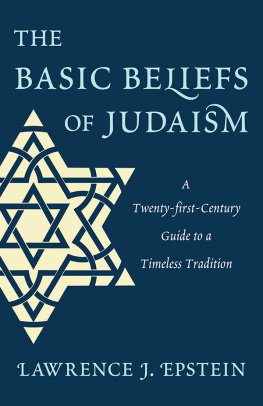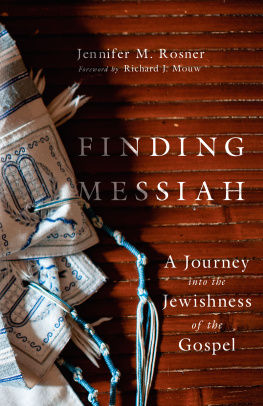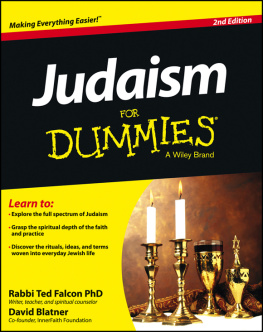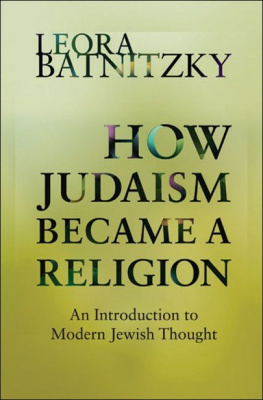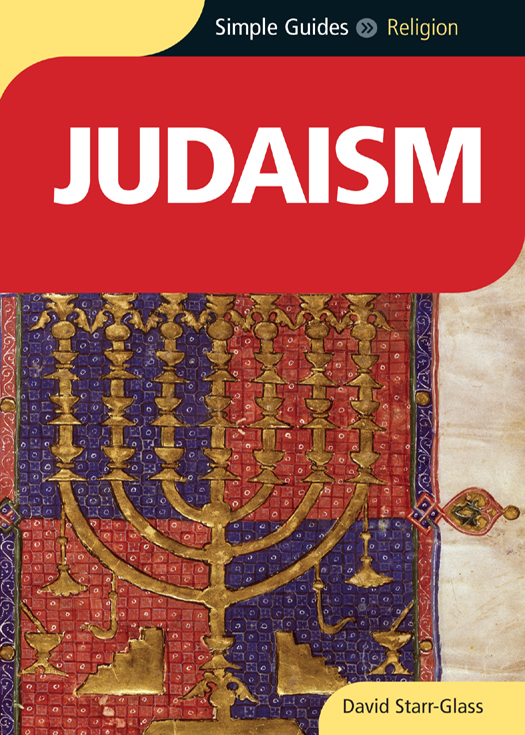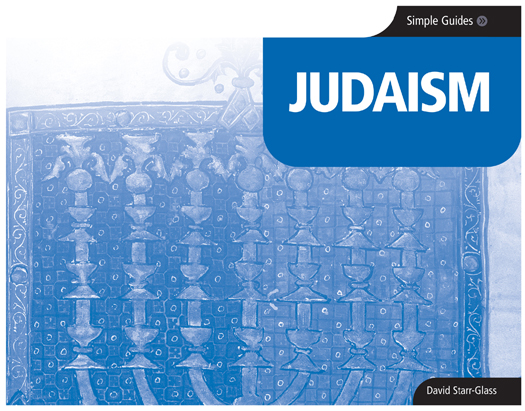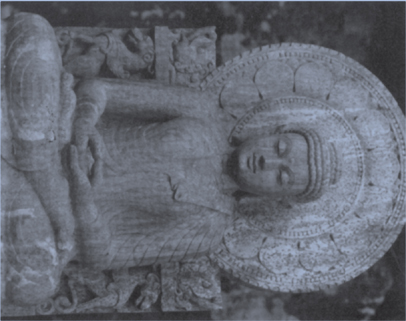David Starr-Glass - Judaism--Simple Guides
Here you can read online David Starr-Glass - Judaism--Simple Guides full text of the book (entire story) in english for free. Download pdf and epub, get meaning, cover and reviews about this ebook. year: 2008, publisher: Kuperard, genre: Religion. Description of the work, (preface) as well as reviews are available. Best literature library LitArk.com created for fans of good reading and offers a wide selection of genres:
Romance novel
Science fiction
Adventure
Detective
Science
History
Home and family
Prose
Art
Politics
Computer
Non-fiction
Religion
Business
Children
Humor
Choose a favorite category and find really read worthwhile books. Enjoy immersion in the world of imagination, feel the emotions of the characters or learn something new for yourself, make an fascinating discovery.

- Book:Judaism--Simple Guides
- Author:
- Publisher:Kuperard
- Genre:
- Year:2008
- Rating:3 / 5
- Favourites:Add to favourites
- Your mark:
Judaism--Simple Guides: summary, description and annotation
We offer to read an annotation, description, summary or preface (depends on what the author of the book "Judaism--Simple Guides" wrote himself). If you haven't found the necessary information about the book — write in the comments, we will try to find it.
- to understand what it means to be a Jew
- to recognize the key Jewish festivals and the different aspects of Jewish practice and belief
- to avoid faux pas in conversation, in travelling and in personal relationshipsJudaism is the worlds oldest monotheistic religion. While the number of its adherents has always been small, its principles and ethics have influenced Christianity and Islam, and its holy book, the Hebrew Bible, is arguably the foundation document of Western civilization.The most important principle in Judaism is the belief in a single, ineffable Godhead, who created the universe and continues to govern it with justice and compassion. According to Jewish tradition, Judaism began with the covenant between God and Abraham, the patriarch and progenitor of the Jewish people. The central moment in their spiritual journey was the revelation of His laws to Moses on Mount Sinai, acceptance of which bound them to create a moral and ethical society that would be a light unto nations. Traditionally, Judaism places great value on study of the Torah and the observance of its commandments. It is, however, as much a religion of doing as of thinking, and Jews strive for a balance between thought and deed in carrying out the Divine task of repairing the world. In modern Judaism there is no earthly hierarchy: authority lies in its sacred texts, religious law, and learned rabbis who interpret those texts and laws for changing times.Judaism is at once a subtle, practical, collective, and personal religion in which each believer enters into a direct relationship with God. This engaging book is not just a concise and readable introduction to its history, beliefs, teachings, and practices, but a shared exploration of the inner vitality and wisdom of the Jewish world. ACCESS THE WORLDS RELIGIONSSimple Guides: Religion is a series of concise, accessible introductions to the worlds major religions. Written by experts in the field, they offer an engaging and sympathetic description of the key concepts, beliefs and practices of different faiths.Ideal for spiritual seekers and travellers alike, Simple Guides aims to open the doors of perception. Together the books provide a reliable compass to the worlds great spiritual traditions, and a point of reference for further exploration and discovery. By offering essential insights into the core values, customs and beliefs of different societies, they also enable visitors to be aware of the cultural sensibilities of their hosts, and to behave in a way that fosters mutual respect and understanding.
David Starr-Glass: author's other books
Who wrote Judaism--Simple Guides? Find out the surname, the name of the author of the book and a list of all author's works by series.

